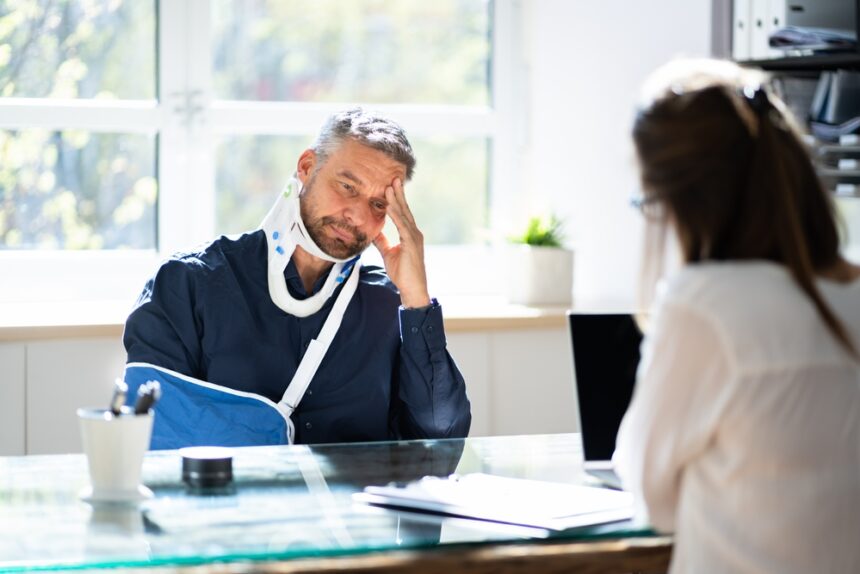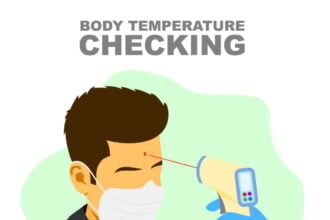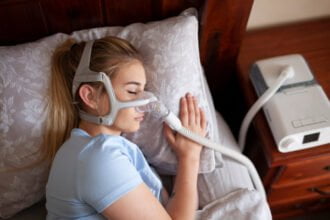No one ever expects to go to work and come home with a severe injury. However, as unexpected and shocking as these situations can be, they happen more than you might think.
Every year, millions of people report workplace injuries that require medical attention and time off work. Sometimes, those injuries are so severe that they change your entire life. If you have been involved in a worksite accident, taking care of yourself should be your first priority. The following information may help you to do just that.
Seek Medical Attention
Whether you experienced minor or severe injuries, seeking medical attention should be one of the first things you do. Not all injuries will be evident straight away, so medical professionals can perform tests and examinations to ensure you receive the treatment you need.
Seeking medical help immediately after your accident is also necessary in the event that you need to apply for workers’ compensation. According to personal injury lawyers Sadaka Law, doctors can note the time of the accident, your injuries, and the costs associated with treatment, which may be helpful should you need to pursue legal action due to negligence.
Follow Doctor’s Orders
If your doctor recommends that you have specific medication, rest, and take time off work, follow their orders. Doctors know what’s best, and your body needs time to heal.
Even if staying idle is something you struggle with, it’s essential to focus on your recovery. In some situations, not obeying your doctor’s orders may extend your recovery time or even be looked upon poorly if you are filing a claim with the courts for compensation.
Eat a Healthy Diet
Our bodies need vitamins and minerals regardless of whether we’re injured or not, but even more so when we are. The more nutrients we have, the quicker our bodies may be able to heal damaged cells and repair muscles.
In particular, macro-nutrients like fats, carbohydrates, and protein can increase how many nutrients our bodies can access for the healing process. Proteins assist with tissue healing, repair, and regrowth, and they come from food like nuts, legumes, seeds, milk, fish, and eggs.
Good fats like omega-3, found in plant oils, nuts, and seeds, may assist with wound healing and cell growth. The previously demonized carbohydrates also have a place in your healing diet, given that they are your body’s main source of energy and help fuel your central nervous system, brain, heart, and kidneys.
Exercise
Depending on the severity of your accident, health professionals may recommend sets of exercises to assist with your recovery. Exercises and stretches may allow you to regain your range of motion, balance, flexibility and prevent stiffness and weakness.
Regular stretches may also reduce how much inflammation and pain you’re experiencing in some parts of your body. If approved by your doctor, consider gentle stretching routines and yoga while you’re healing. The types of exercises and stretches you do can depend on what your injury is and what health professionals recommend.
Prioritize Therapy and Rehab
Some injuries can be so severe that time alone isn’t enough to ensure you’re back to total health. You may need to explore rehabilitation or physical therapy to help restore full function in your body.
While rehab and therapy can sometimes be time-consuming, painful, and stressful, it’s often also necessary. As hard as you might find it, follow all provided instructions and complete the required exercises for as long as your physical therapist recommends. Remember, the goal is to see you on the road to recovery so you can feel at your best and return to work.
Don’t Neglect Your Mental Health
Even though much of your focus may be on your physical pain and discomfort, it’s not uncommon to experience some mental health-related side effects from a workplace accident. In fact, post-traumatic stress disorder can be a common development in accident victims.
Talk to friends and family if you feel you can, and indulge in self-care practices like journaling and mindfulness meditation. Sometimes, you may feel more comfortable talking to a mental health professional, such as a therapist, who can offer coping mechanisms and tools for dealing with your experience. Your mental health is just as important as your physical health, so make it your priority.
Don’t Return Too Soon
Since there can be financial implications for being off work, many people try to return to employment long before they are truly ready. If possible, take off as much time as you need to heal both physically and mentally. Returning to work too soon, or before your doctor approves it, may mean you take longer to recover and be at risk of recurring problems related to your injuries in the future.
Return to Full Duties Slowly
After spending a great deal of time at home trying to recover from your injuries, you’re likely eager to jump right back into your old role. If your job is inherently physical, don’t rush the process. You may have been out of work for some time, and your body will need time to adjust to work tasks you haven’t achieved in a while.
If your doctor recommends a return-to-work plan, ensure you and your employer follow this to the letter, even if it means you’re not initially as productive. This plan might include reduced hours and modified or light duties.
Follow Up With Healthcare Providers
Doctors can only guess and estimate how long it will take for you to return to total health after following their instructions for post-accident care. Everyone is different and heals at different rates. Always attend follow-up appointments with healthcare providers to track your progress.
They can provide insight into whether their treatment plans are working or if you require additional support. These appointments are also an opportunity to see whether you need further specialist care or intervention to improve your chances of returning to total health.
Being involved in an accident at a worksite can be stressful, painful, and exhausting. It can also have a significant impact on your health and wellbeing. Doing any of these things above may be how you make sure your recovery process goes as smoothly as possible.










